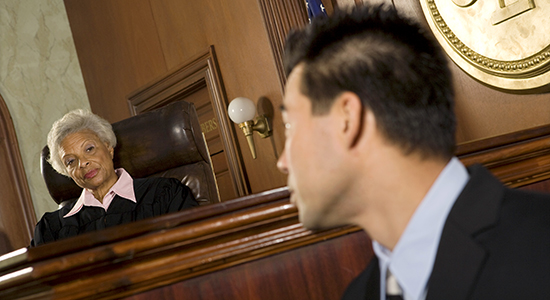
Whether appearing before an appellate court or a trial court, oral argument may be your only opportunity to come face-to-face with the court. To make the most of that opportunity, understanding oral arguments from the perspective of a judge can make your argument more effective and convincing.
In an effort to gain this perspective with respect to both appellate and trial court settings, here is advice from Judge Diane Sykes, U.S. Circuit Court of Appeals for the Seventh Circuit,1 and Milwaukee County Circuit Court Judge Paul Van Grunsven.
The tips provided are both practical and effective and start with the preparation of your argument.
Preparation, Purpose, Facts
When preparing, Judge Sykes advises that you know the primary purposes of your argument: “to reinforce the main points of your argument; answer the judges’ questions; and satisfy any doubts they might have” about your position.2
According to Judge Van Grunsven, make certain that all affidavits filed with the trial court correctly state facts.” He further advises to prepare your argument assuming that the court has read the briefs and law relevant to the issues. Of course, also be prepared in the event a court has not read the briefs.
Eye Contact and Precision
At the outset, tell the court precisely why you are there and what you are asking from the court.
“The most effective oral arguments are those that are brief and to the point,” says Judge Van Grunsven.
Do not read your argument or your brief, and always make eye contact with the court during the argument. Reading the argument is “deadly.”3
Collectively, Judge Sykes and Judge Van Grunsven emphasize that litigators should engage in a “professional” conversation with the court, making certain to answer the court’s questions as directly as possible.4 Start with your best points first.5
However, if the court frames the issues, stay focused on those identified issues, says Judge Van Grunsven.
Hypotheticals
Respond to hypothetical questions whether you believe they are relevant to the issues at hand.6 Judge Sykes commented that one would be surprised by the number of lawyers who respond to hypotheticals by suggesting that the hypothetical is not relevant to the case before the court.7
Some judges send hypotheticals and questions to counsel prior to oral argument. This procedure makes it easier to identify the issues in need of clarification.
In a recent case, for example, Milwaukee County Circuit Court Judge Richard Sankovitz sent the court’s questions to counsel before several motion hearings. Often, written responses with appropriate law were submitted to the court prior to the hearing.
Fine Points
Regardless, do not attempt to evade the court’s questions or redirect the court, whether you know the questions before the hearing or are questioned at the hearing.8
And, never interrupt or speak over the judge or another lawyer.9
Be prepared to acknowledge vulnerable points, and distinguish case law that is contrary to your position without misstating the law.10 According to Judge Van Grunsven, “an attorney loses all credibility (and likely the motion) when a case is wrongly cited for a legal theory or proposition that is not clearly stated in the case.”
Remember, you need to convince the court that the result you are asking for is the correct result for your case.
Judge Van Grunsven recommends concluding by asking the court if it has any other questions or asking if the record needs to be clarified in any way.
Final Words of Advice
Finally, Judge Van Grunsven advises to be very cautious in asking for attorney’s fees and costs. “This is an area that has a high frequency of appellate review and reversal, and you need to make a solid record to support any request for fees and costs,” he says.
Obviously, litigators have different styles for presenting oral arguments. However, considering oral argument from the judiciary perspective can strengthen your argument and enhance your likelihood of success before the court.
This article was originally published on the State Bar of Wisconsin’s Litigation Section Blog. Visit the State Bar sections or the Litigation Section web pages to learn more about the benefits of section membership.
Endnotes
1 For additional advice on oral arguments, see: Hon. Diane S. Sykes, Advice for Appellate Litigators, 39 Litigation 4 (Summer 2013).
2 Id.
3 Id., 6; tips from Judge Van Grunsven
4 Id.
5 Id.
6Id.
7 Id.
8 See Sykes, Supra note 1, at 6
9 Id.
10 Id.
